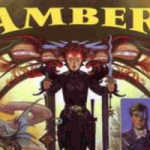Conversation Games in the Wild: Deadwood
June 24, 2011 - Games / Mouthwash
One of the things I’ve been doing in the course of developing the Mouthwash conversation gameplay is to analyze transcripts of TV shows with good dialogue. The idea is to have some good examples to work with while I figure out conversational skills and how all the dynamics work together.
So the first thing I did, naturally, was to go through the entire first episode of Deadwood. I figured I’d start with the best, right? I made a big Excel file with the dialogue lines in the leftmost column (thanks to the fan transcripts here) and a bunch of annotations in the other columns about how the line seemed to affect the context and the other characters. It’s a really fun exercise, and it’s been very influential on Mouthwash mechanics.
One of the mechanics this inspired was how Mouthwash will handle confidence. Prior to the transcript coding, I had envisioned confidence as similar to skill points. Every time you perform a successful speech act, you get Confidence points. You can then expend those points to perform higher-level skills. (This is pretty much how skill points are handled in Chrono Cross, for example.)
This made a lot of sense to me and seemed like it could support some good tactics. Your stats would control the amount of confidence you start a conversation with and how quickly it increases with success. Embarrassing failures in the conversation would deplete your confidence, as would various aggressive skills like insults. Maintaining a high confidence level would be a major part of your strategy in a conversation.
But then I had a bunch of trouble analyzing the following scene. Since this is the pilot, it’s not too much of a spoiler to say that the idea here is that Al is trying to run a con on Brom (the mustachioed gentleman who is out of his element). This scene shows that con being successful.
[youtube=http://www.youtube.com/watch?v=ziR7jWdGPYo]
Here was my question: what the hell is Al doing at the beginning? As far as I can tell, he’s pretending to be pretending not to be angry. The thing he’s supposedly angry about is entirely fictional, part of the con. But when Brom “sees through” him, Al denies being angry. So it’s a whole weird performance of a performance. What’s the point of that? In a similar vein, he has Brom “figure out” that Tim might be off selling the claim to E.B. with as little prompting as possible. Why not just tell him that Tim’s planning to sell to E.B.?
Okay, so from the point of view of common sense, my questions here are totally stupid. The point is that Al’s being subtle, and it makes the con more effective if Brom feels like he’s coming to these conclusions on his own. But why is that? And is there a way to model that easily in Mouthwash?
What I ended up deciding is that confidence should cut both ways. In RPG combat terms, confidence gives you more attack points, but it also lowers your defense. If you look at these guys as Mouthwash agents, what Al is doing at the beginning of the clip is giving Brom a lot of false successes that ratchet up his confidence. At the same time, this is making Brom less and less capable of detecting lies, which is a defensive skill. He’s getting over-confident; he’s more likely to do stupid things, like raise his bid as much as he does at the end, or believe in E.B.’s terrible acting job.
This idea had the added benefit of explaining the strategy behind self-effacing characters, like Wild Bill. Bill is a guy who’s afforded much respect and status in the camp. But he tends to dodge the confidence-raising compliments of others and to downplay his status as much as possible. He’s trying to be defensive. At this point in his life, his goal (conversation-wise) is to protect himself from feeling and expressing emotions as much as possible. Maintaining low confidence is a way to keep those barriers up.
I haven’t quite figured out how to balance this in-game, but I think it’s kind of a poignant mechanic. There’s a lot of other stuff that came out of this transcript, such as the fact that Charlie Utter is a fucking ninja. The things people do with language in Deadwood is just as dense and subtle as you’d expect, as far as I can tell. Might add more to this series later.



